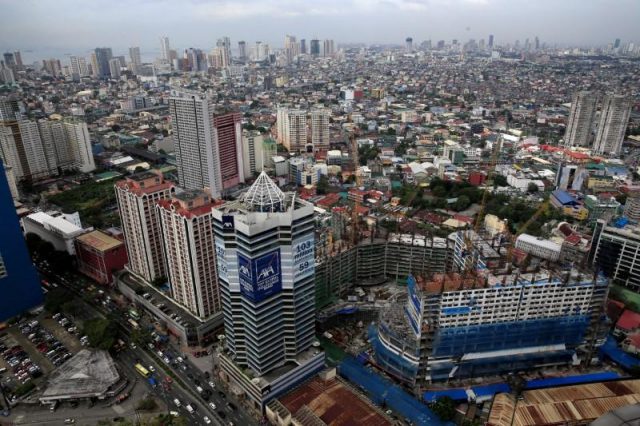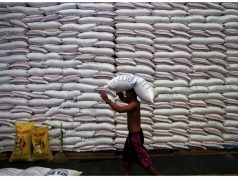
MANILA – A research study by Japanese financial company Nomura tagged the Philippines, India, and Indonesia as Asia’s “new rising stars” as these are seen to boost the region’s potential growth by at least eight percent in 2018.
The Philippines, for one, is projected to grow, as measured by gross domestic product (GDP) by 6.9 percent next year, higher than its 6.7 percent forecast for this year.
Nomura expects the domestic economy to expand by 7.1 percent in 2019.
Economic managers have set the government’s GDP target for 2017 at 6.5-7.5 percent while it is between 7 and 8 percent for 2018-22.
“The economy has sound fundamentals, a healthy fiscal position and is one of the few in Asia that is underleveraged. Domestic demand growth has consistently been the strongest in Asia, and the biggest challenge ahead will be to avoid overheating,” the research said.
The research forecasts the Bangko Sentral ng Pilipinas (BSP) to increase key rates by a total of 100 basis points next year as it projects inflation to go beyond the government’s two to four percent target until 2019.
The hikes are expected to be implemented on a quarterly basis, or at 25 basis points each.
To date, the Bangko Sentral ng Pilipinas’ (BSP) key rate, or rate of the reverse repurchase (RRP) facility, is 3 percent.
Upside risk on inflation is seen to come from supply-side factors “but we think it will be difficult for BSP to look through these risks amid growth persisting above potential and rising overheating concerns.”
“As a result, we see relatively aggressive monetary policy tightening as necessary,” it said.
The study also forecasts fiscal policies to remain expansionary in the Philippines, the same as the expectations for Hong Kong, Indonesia, and Korea.
It expects fiscal policy in the Philippines and Indonesia to help lift growth “not just in terms of running higher fiscal deficits but also improving the quality of spending, with a clear prioritization on infrastructure implementation.”
It explained that the title “new rising stars” was given to India, Indonesia, and the Philippines “because they still have enormous growth potential to unlock” given the young demographics, lower rates of urbanization, and reforms on supply-side issues.
It said that the three countries “have kept prudent monetary policy and implemented major tax reforms to increase fiscal space for infrastructure spending.”
These three countries, it said, “are replacing Northeast Asia’s ageing and debt-burdened tigers as the core of Asia’s economic dynamism.”
“They are rapidly moving up the World Bank’s “ease of doing business” world rankings, and winning sovereign credit rating upgrades,” it said.
These ratings upgrades, it said, is attracting more foreign investors, thus, the projection that Foreign Direct Investment (FDI) would continue to rise in these cub economies.
Investments from within the region, especially from China and Japan, are also rising versus those from the West, it said.
“Putting all these pieces together, we believe that a domestic investment boom is in the making for Asia’s cubs, and like the Asian tigers before them, it could do wonders in lifting productivity and potential growth rates to in excess of 8 percent. Indeed, in terms of growth potential of major Asian economies, it is only in these three cubs that we expect increases,” the study said.









